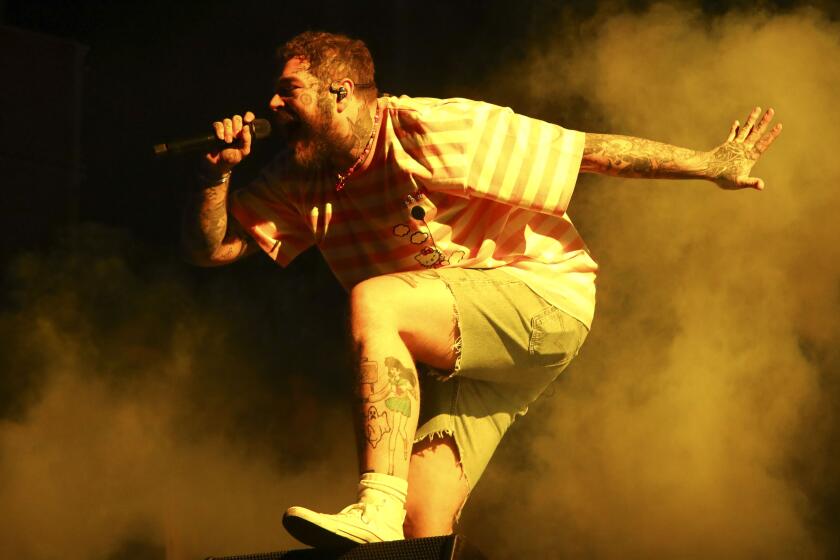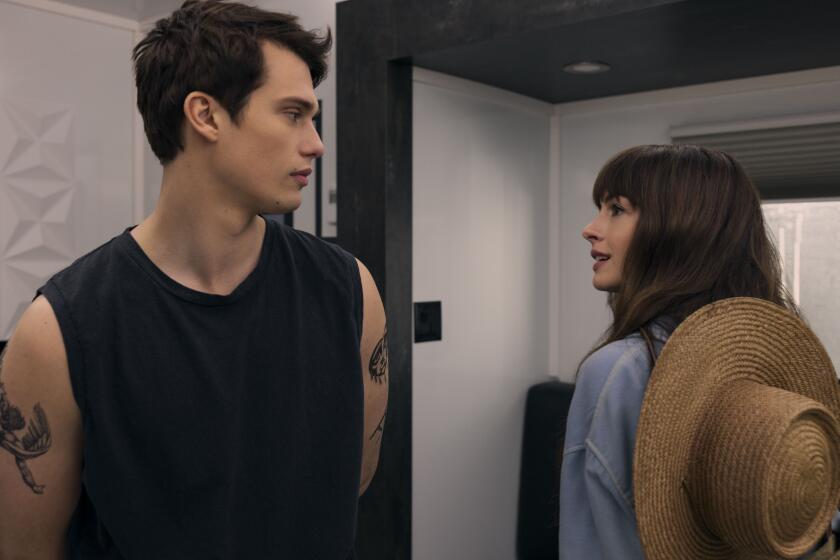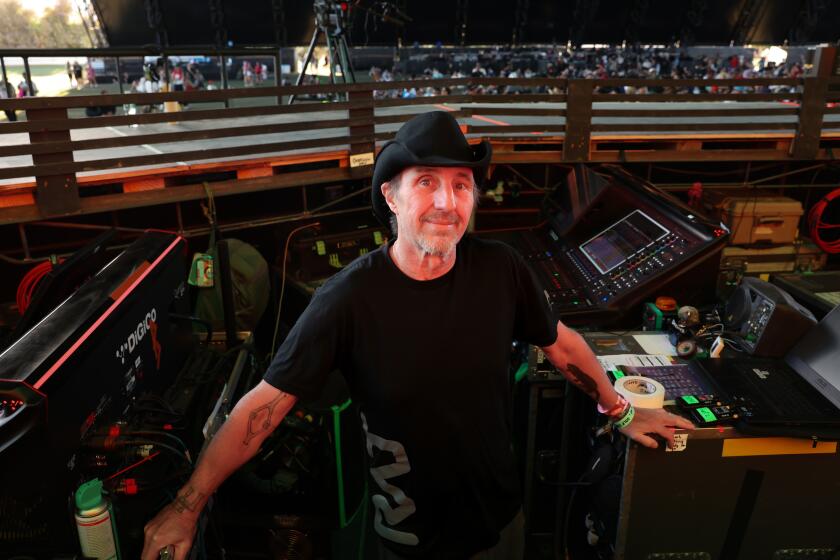Coachella showcased the power and joy of dance
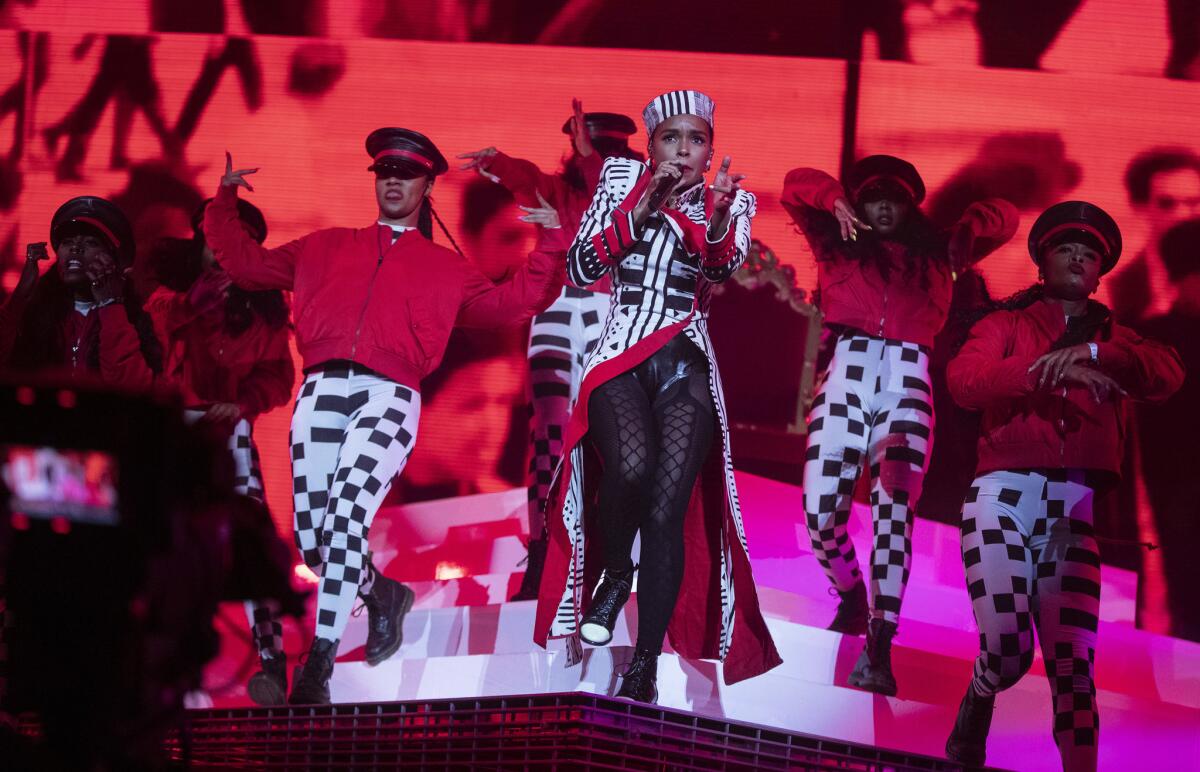
Janelle MonĂĄe, at the start of her performance at the Coachella Valley Music and Arts Festival on Friday, appeared alone at the top of a tiered, white pyramid-like structure.
She wasnât alone for long, though. After a few bars of the Prince-esque âCrazy, Classic, Life,â dancers would emerge. And as the set progressed, she would be joined by a small army of 18 performers, all dressed in black and white checkered bodysuits and red jackets, and all choreographed to reflect the tone of her music â femininity at its most powerful, celebratory and individualized.
The dancers were a constant presence and force throughout the 50-minute set, a group of best friends, her personal hype-women and a real-life embodiment of MonĂĄeâs âblack girl magicâ message.
âDancers are so integral because theyâre extensions of the artist on stage,â said MonĂĄeâs choreographer and show director, Jemel McWilliams. âThey are the visual voice for the artists.â
The moves werenât always complex. On MonĂĄeâs âI Like That,â the dancers were simply seated on the stage, framing the artist.
On stages large and small across Coachellaâs first weekend, dance not only brought performances to life but sought to heighten the personalities of the various performers. And the looks, tones and moves were diverse, including contemporary theatrics from Christine and the Queens, flamenco fusion from RosalĂa, West-African stylings from Mr. Eazi and Lizzoâs body-positive twerk-fest. Though designed to accompany music, Coachella was a showcase for thoroughly modern, highly visual dance.
Choreographing such shows is a meticulous process.
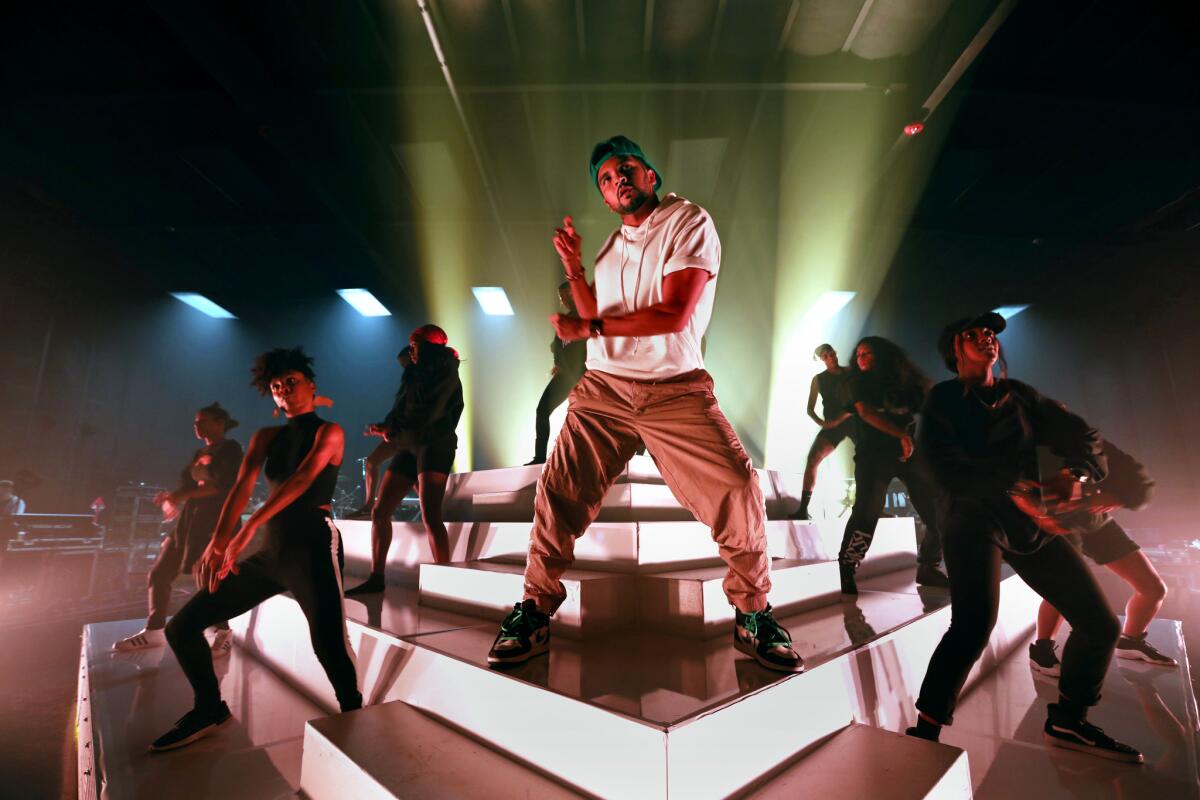
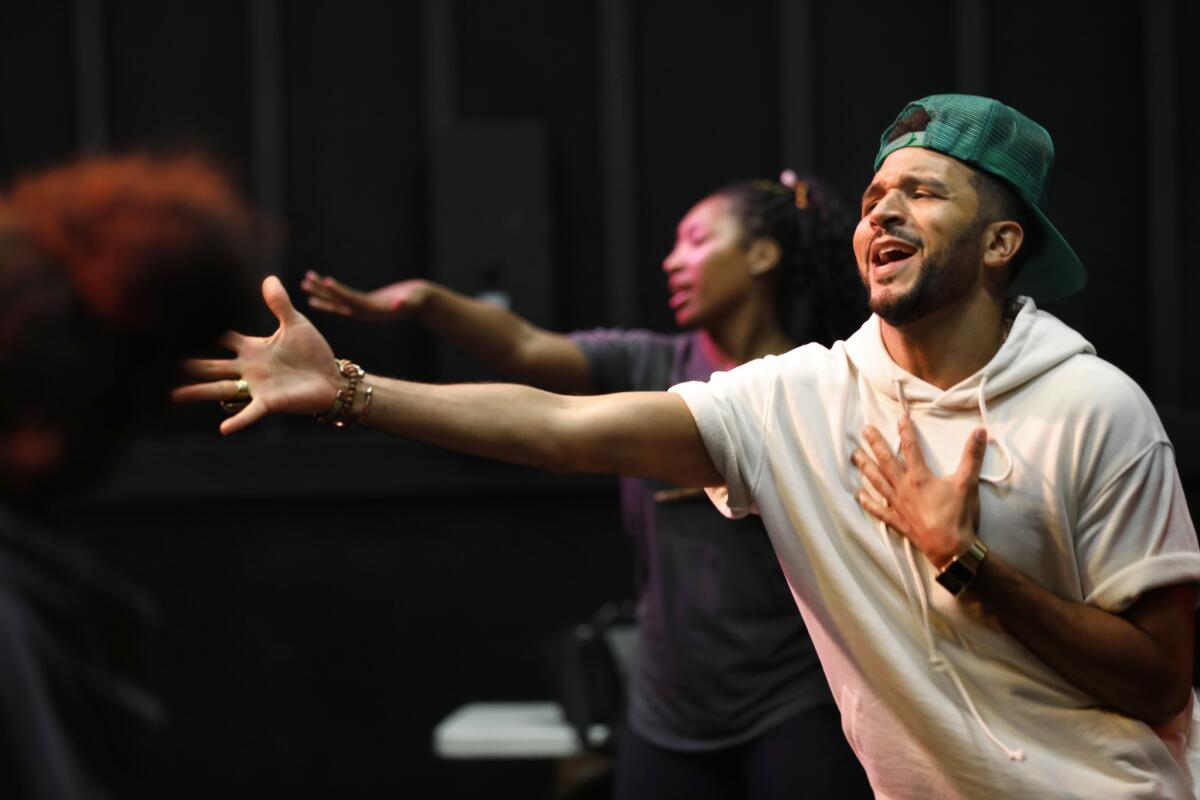
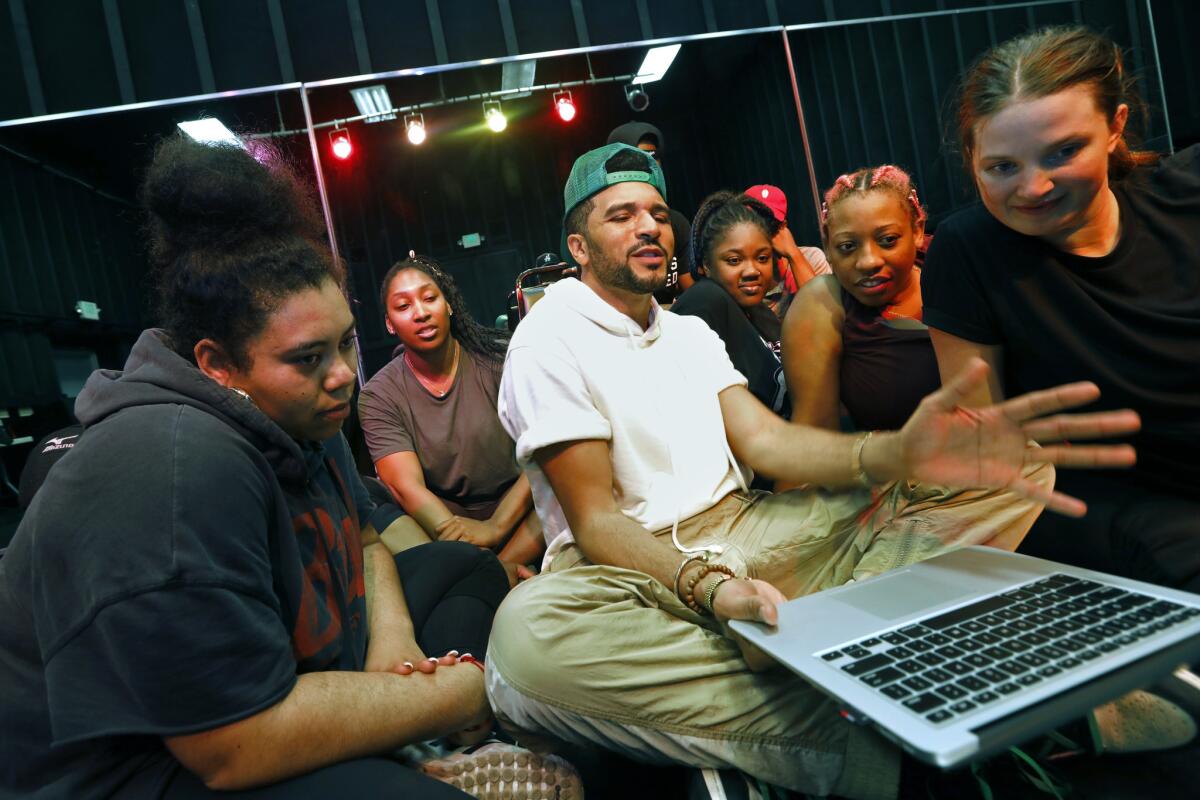
On the Tuesday before MonĂĄeâs performance, McWilliams rehearsed with the cast of dancers at a Burbank studio. As a full production rehearsal, the group ran through numbers using Coachella stage props and MonĂĄeâs band.
McWilliams paced the room with a notebook, making adjustments to the dancersâ formations and clarifying questions about differences in the rehearsal space and the Coachella main stage. As he sang and hummed bits of âTightrope,â he patiently looked for bits of choreography to fine-tune.
When they ran through âI Got the Juice,â a funky track featuring producer Pharrell Williams, the rehearsal space erupted into a dance playground with some miming a game of double dutch, others freestyling.
âDancers are so integral because theyâre extensions of the artist on stage.â
â Jemel McWilliams
McWilliams stood in for MonĂĄe, holding rolled up paper as a pretend-microphone.
After rehearsing the section a few times, the dancers took a break for lunch, but as the choreographer and show director for rapper-singer Lizzo as well, McWilliams had more work to do. At a nearby studio on the same Burbank lot, McWilliams watched Lizzoâs dancers hone their choreography for âTempo,â a bass-heavy song celebrating plus-sized women.
This choreography featured Lizzoâs cast of curvy dancers strenuously twerking in various formations. The dancers are representative of the rapperâs movement promoting inclusion and body positivity. â[This] is showing the world that full-figured women can dance just as hard as your typical, stereotypical dancer on stage,â he said.
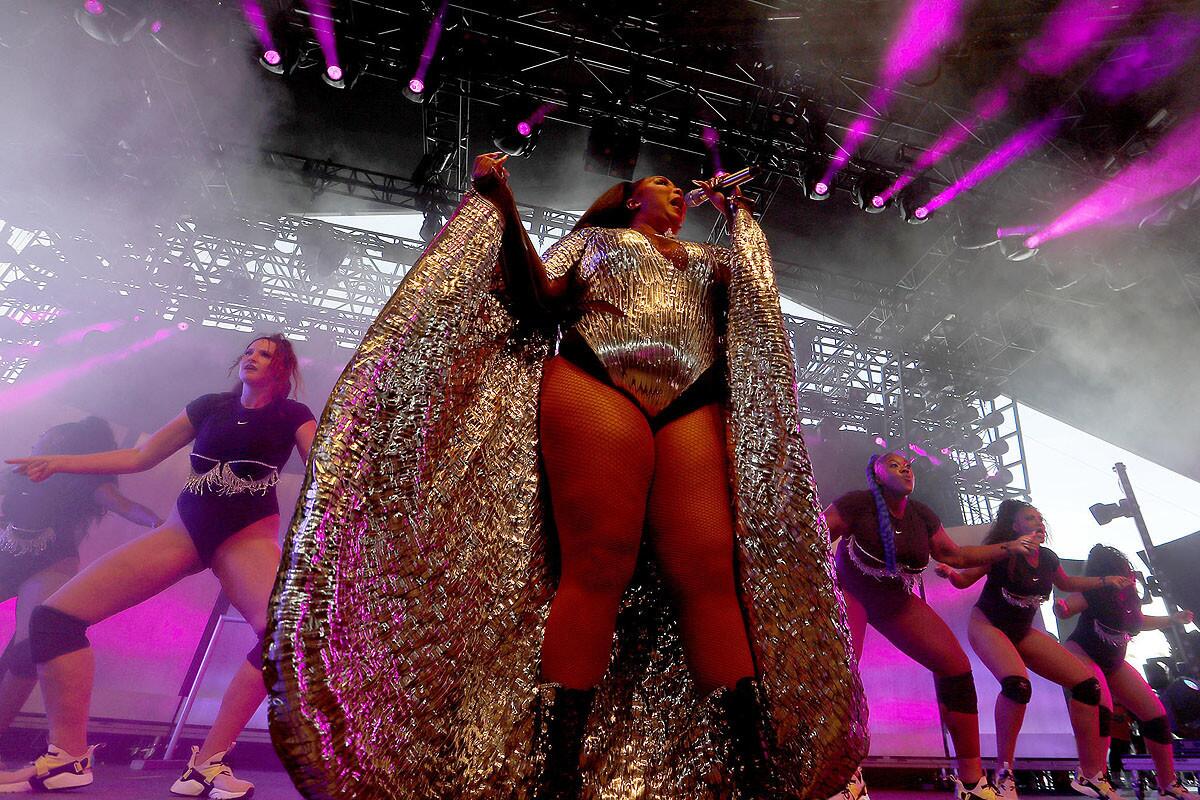
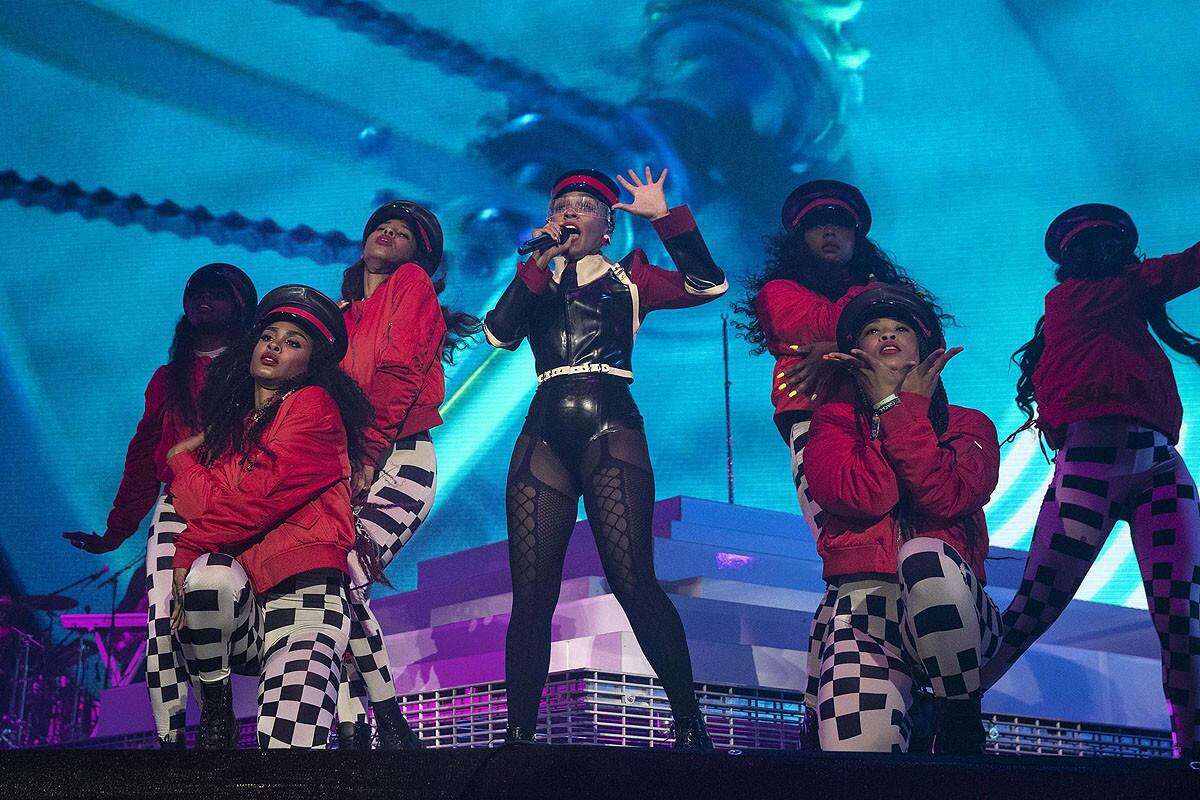
Although McWilliams developed much of MonĂĄeâs festival choreography before her 2018 tour, getting ready for both Coachella performances meant quite a few 16-hour-plus days. As show director, McWilliams is also responsible for the âoverall show flow,â including lighting, content and styling.
McWilliams said he felt the pressures of creating a show following BeyoncĂŠâs historic âHomecomingâ performance in 2018. âThe challenge has been coming off of Beychella,â he said. But he stressed that Coachella is still just a festival thatâs âdirty, gritty, and spontaneous and rock and roll.â The objective is to have a good time while âstill putting on an excellent show.â
ICYMI: Scenes from Week One of the Coachella Valley Music and Arts Festival Âť
His general choreography process begins by spending time with artists to get a deeper understanding of their songs. âAnd then I just try to paint the picture from there,â he said.
But creating the actual steps is a bit harder to define. âI donât know how it happens, but I start getting twitches,â he said. âAnyone on my team knows when [Iâm] in the zone, [I] start pacing back and forth.â
Choreographer Charm LaâDonna described a similar process. This year, LaâDonna worked with Spanish performer RosalĂa for about two weeks in Madrid and Barcelona to develop choreography for the artistâs flamenco fusion at Coachella.
As an artist from Compton, LaâDonna enjoyed fusing two different cultures through dance. She said her job was to bring the show to life.
At RosalĂaâs Friday set, she was flanked by a group of six dancers. On one song, the dancers repeated a punching motion, and when RosalĂa joined in, energetically thrusting her fists and chest, the crowd roared. During "Que No Salga La Luna," RosalĂa performed a strong and sensual flamenco that left the audience enthralled.
âI want people to be inspired,â LaâDonna said. âI want people to want to learn about different cultures and understand that we are all human.â
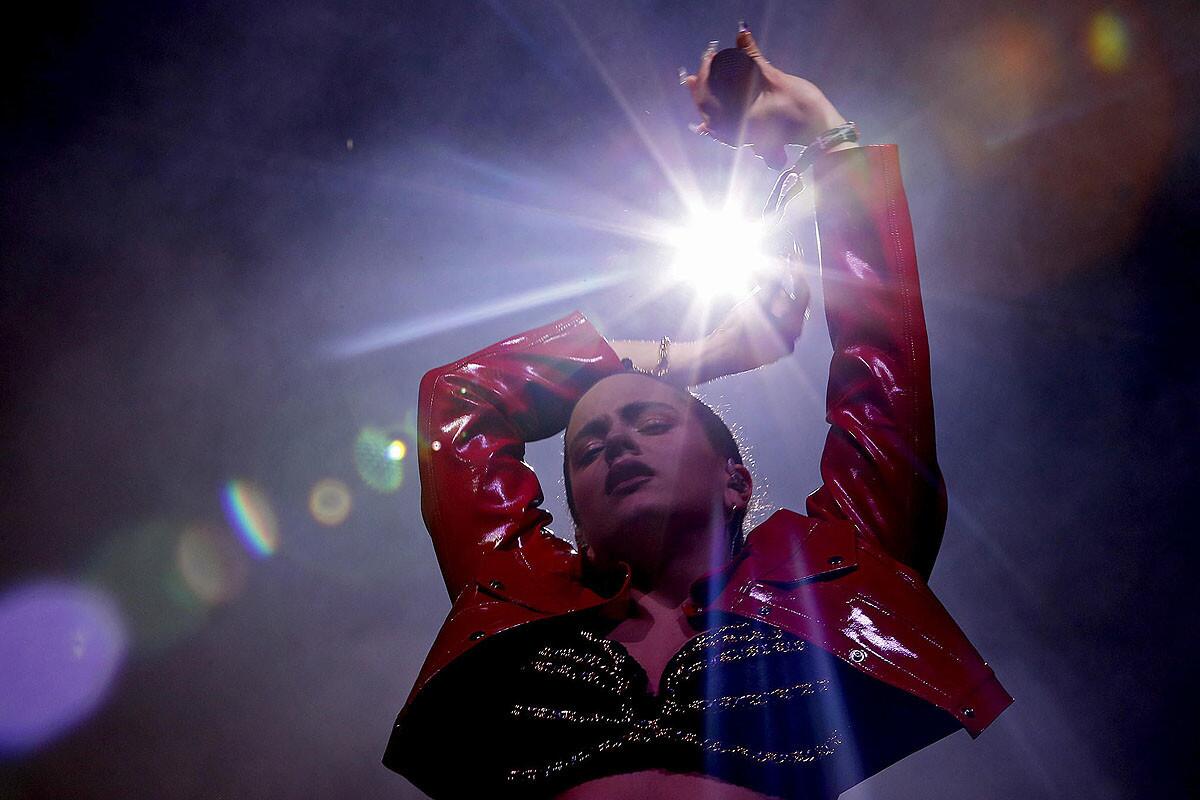
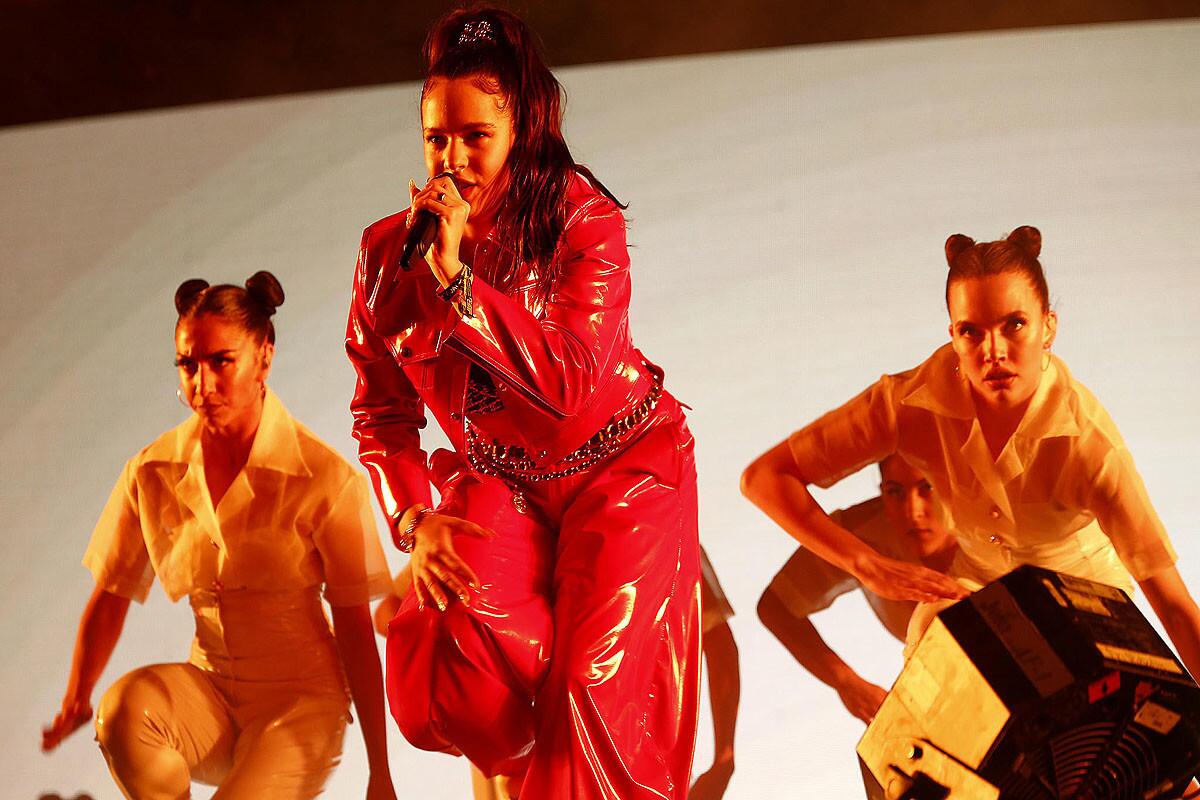
Even artists without backup dancers benefit from working with choreographers. For this yearâs festival, Matthew Peacock choreographed for British band The 1975 and rising idiosyncratic pop star Billie Eilish.
He also was a movement coach for rapper Tierra Whack, which meant helping the artist work on her overall stage presence.
âIt involves me working with [artists] in the studio and guiding them through movements that feel authentic to them and how they move organically,â Peacock said. âIâm usually collaborating with them to tap into their bodies so they become more aware of what is accessible to them when they are performing.â
FULL COVERAGE: Coachella 2019 Âť
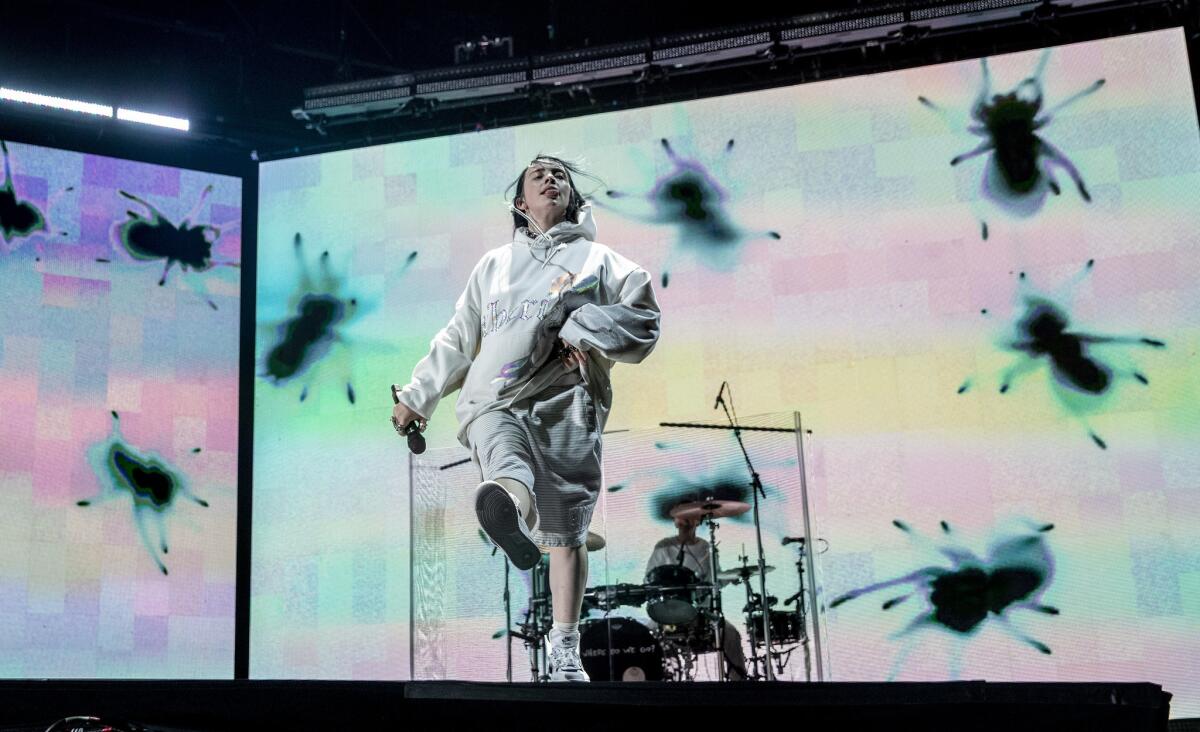
For French pop artist HĂŠloise Letissier, who records as Christine and the Queens, choreography has long been a fundamental aspect of her artistry.
âDance has something to do with acceptance,â she said.
Inspired by the likes of innovative modern dance choreographer Pina Bausch and Michael Jackson, Letissierâs Coachella set transcended a typical performance. It had the feeling of an evening-length contemporary dance theater work.
âI have really charismatic dancers ... I chose people who challenge me.â
â HĂŠloĂŻse Letissier of Christine and the Queens
âI grew up with the classic pop routines I saw on MTV that really impressed me,â she said, hours before her Saturday performance.
Letissier also admired contemporary dance and how it involves âbodies that can be free and maybe sometimes freaky and distorted. I always wanted to clash two influences in my own dancing.â
At the desert festival, Letissierâs posse of intense and technically gifted dancers wore muted colors and interacted with the pop singer, battling the performer and each other, running in and out of different formations, and melting into one another during a slow motion number.
Letissier collaborated closely with French contemporary dance collective La Horde to choreograph movement that accompanies her latest album, âChris,â and compared casting her touring dancers to casting characters in a movie.
âEven on stage, I have really charismatic dancers,â she said. âI chose people who challenge me.â
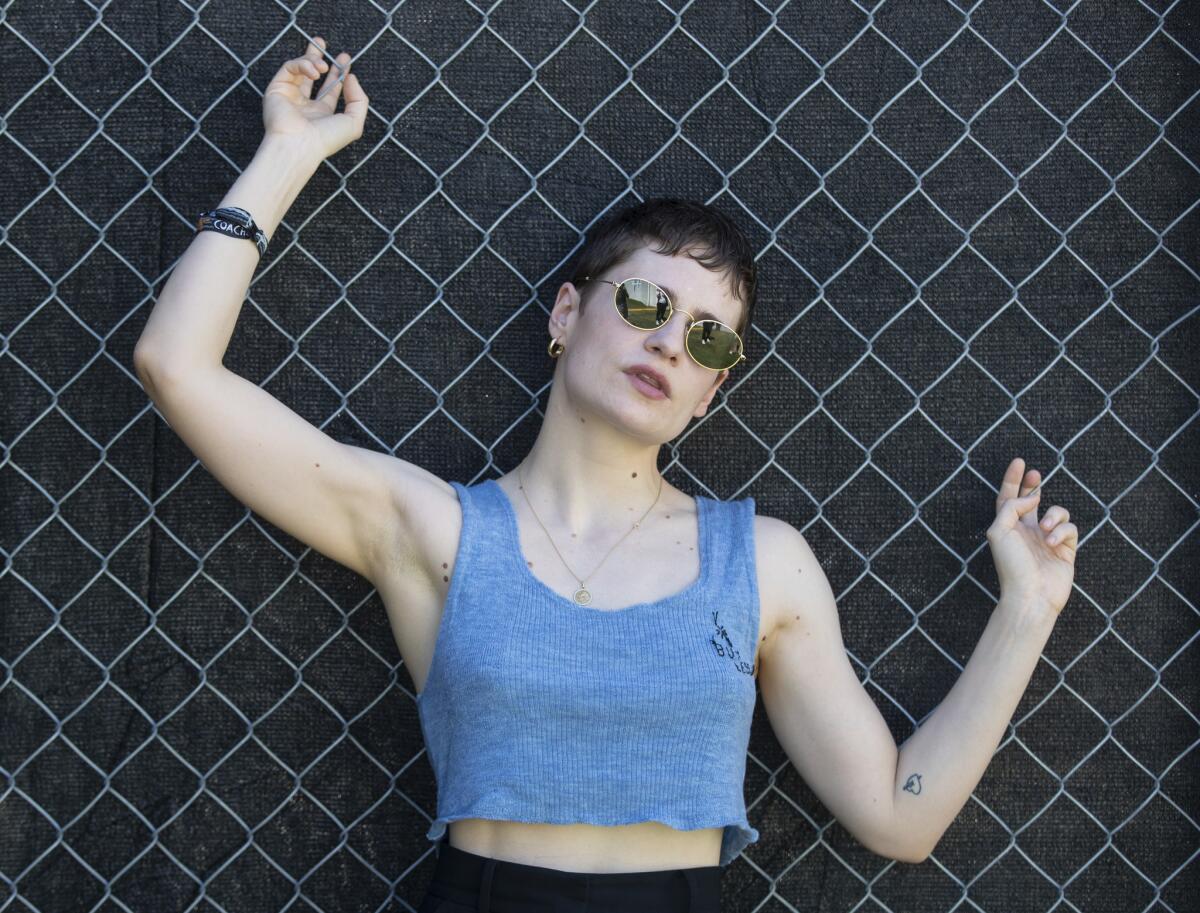
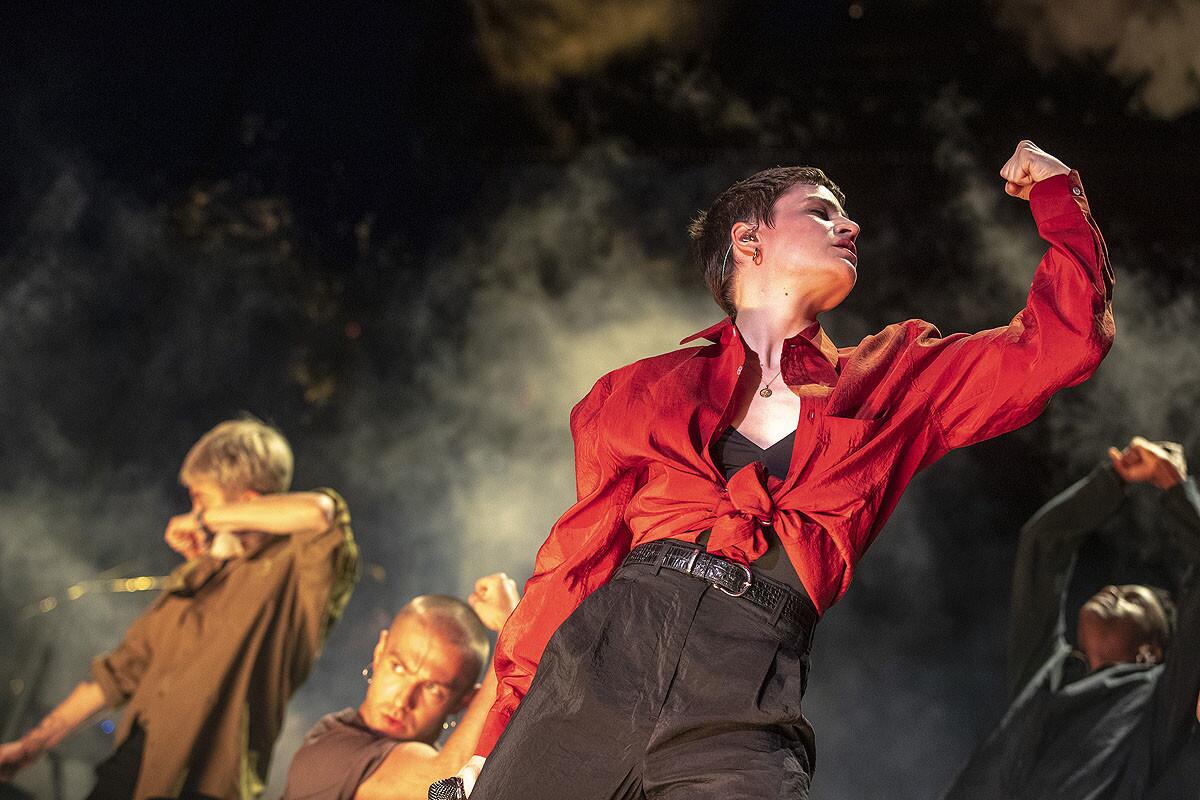
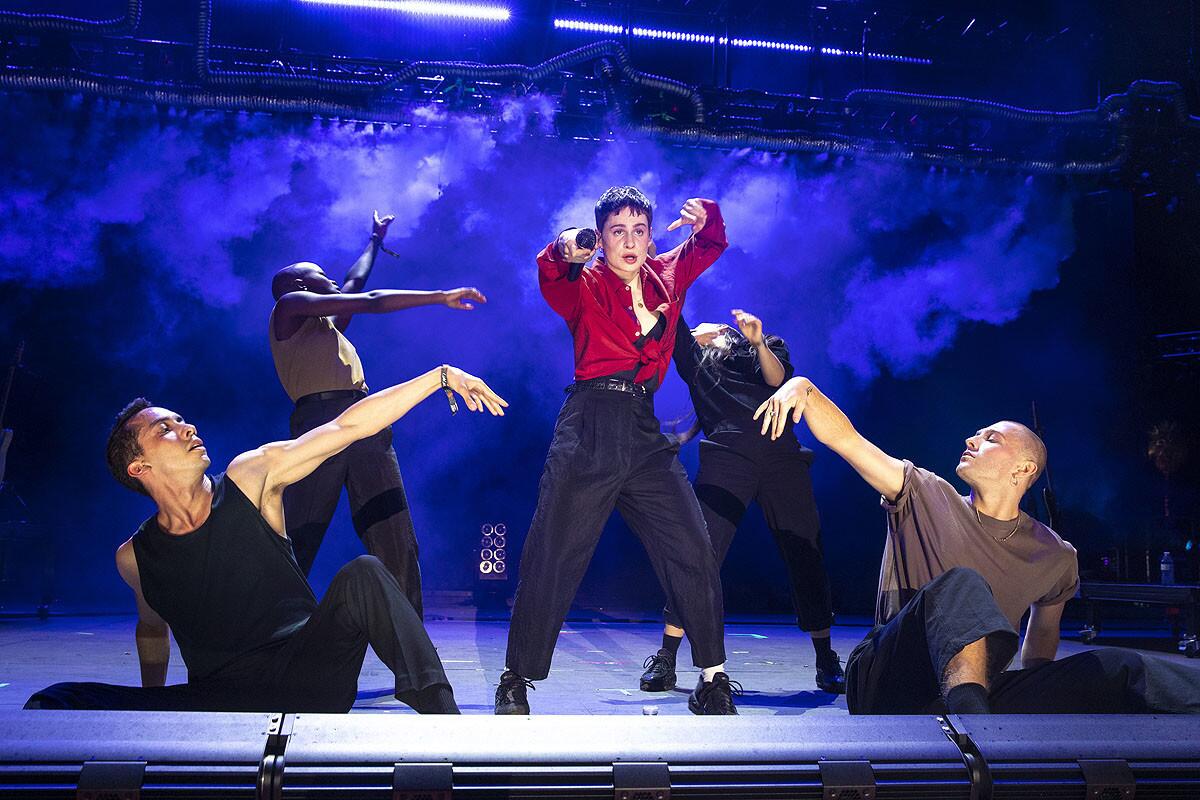
Letissier wants her audience to not only be inspired but literally start moving. The best compliments, she says, are when people say her performance inspired them to go out dancing.
To discover the joy of dance, choreographers say, is also to embrace personal and communal affirmation. McWilliams wants to reach those who have been marginalized and ignored in mainstream media. âI want everyone to feel accepted, included, empowered,â McWilliams said. âIt's important that people can see themselves and can have a good time.â
The biggest entertainment stories
Get our big stories about Hollywood, film, television, music, arts, culture and more right in your inbox as soon as they publish.
You may occasionally receive promotional content from the Los Angeles Times.

